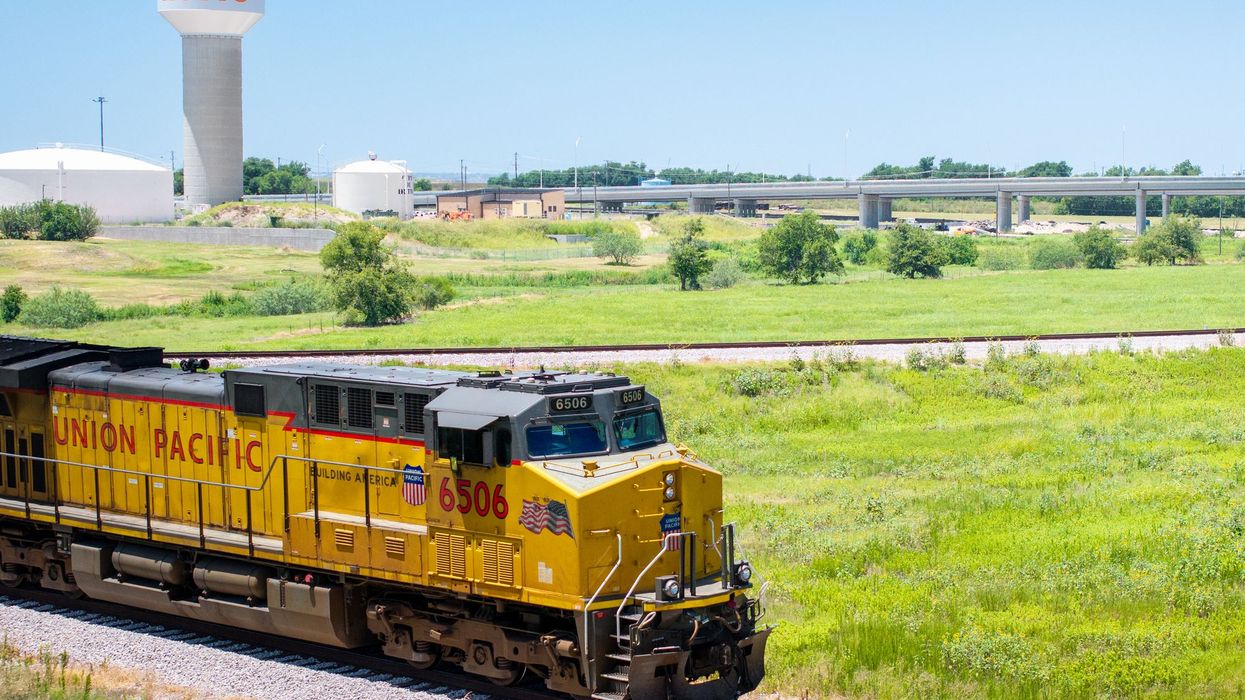Bloomberg reports: "The environmental impact of doing business costs the global economy $4.7 trillion a year, according to a report released April 15 .
"That figure includes the top 100 environmental impacts, such as air pollution-related health costs, the effects of greenhouse gas emissions, the loss of nature-based benefits such as carbon storage by forests, and loss of natural resources.
"The top six environmental costs are from greenhouse gas emissions, water use, land use, air pollution, land and water pollution, and waste, according to 'Natural Capital at Risk: The Top 100 Externalities of Business.' [PDF]
"The report was released by the TEEB for Business Coalition, consisting of organizations that support accounting for natural capital in business. TEEB stands for The Economics of Ecosystems and Biodiversity program backed by the Group of Eight economic powers and the United Nations Environment Program."
Grist writes about the report: "None of the world's top industries would be profitable if they paid for the natural capital they use."
The following analysts have researched this problem and have proposed solutions to address:
DAPHNE WYSHAM, daphne at ips-dc.org
Wysham is a fellow at the Institute for Policy Studies and is director of the Genuine Progress Project. She said today: "A new report finds that the top 100 most profitable corporations would make no profit whatsoever if they actually had to pay for the natural capital they get for free. The report finds that the social and environmental costs of coal mining in North America and East Asia far outweigh its value. An appropriate response to this hidden subsidy is to begin to put a price on all of the unpriced natural capital and begin to account for it. Maryland was the first jurisdiction in the world to do this with the Genuine Progress Indicator, followed by Vermont. Both states understand, as Paul Hawken once said, that we must move beyond a system that simply steals from the future, sells it in the present, and calls it GDP."
JOHN TALBERTH, jtalberth at sustainable-economy.org
Talberth is president and senior economist at the Center for Sustainable Economy in Washington, D.C. He said today: "An economy is not really growing if it is depleting stocks of capital on which all economic activity ultimately depends. Natural capital is every bit as important as financial capital, roads, bridges and factories, yet -- in our system of national accounts the costs of depleting and degrading forests, wetlands, farmland, clean air and clean water -- it is ignored. Fortunately, new metrics like the Genuine Progress Indicator in Maryland can help us quantify the true costs of business as usual and help design innovative policy options like carbon fees and dividends to internalize these costs, reduce pollution, and improve economic efficiency."
Talberth and Wysham are among the co-authors of the report "Closing the Inequality Divide: A Strategy for Fostering Genuine Progress in Maryland."



